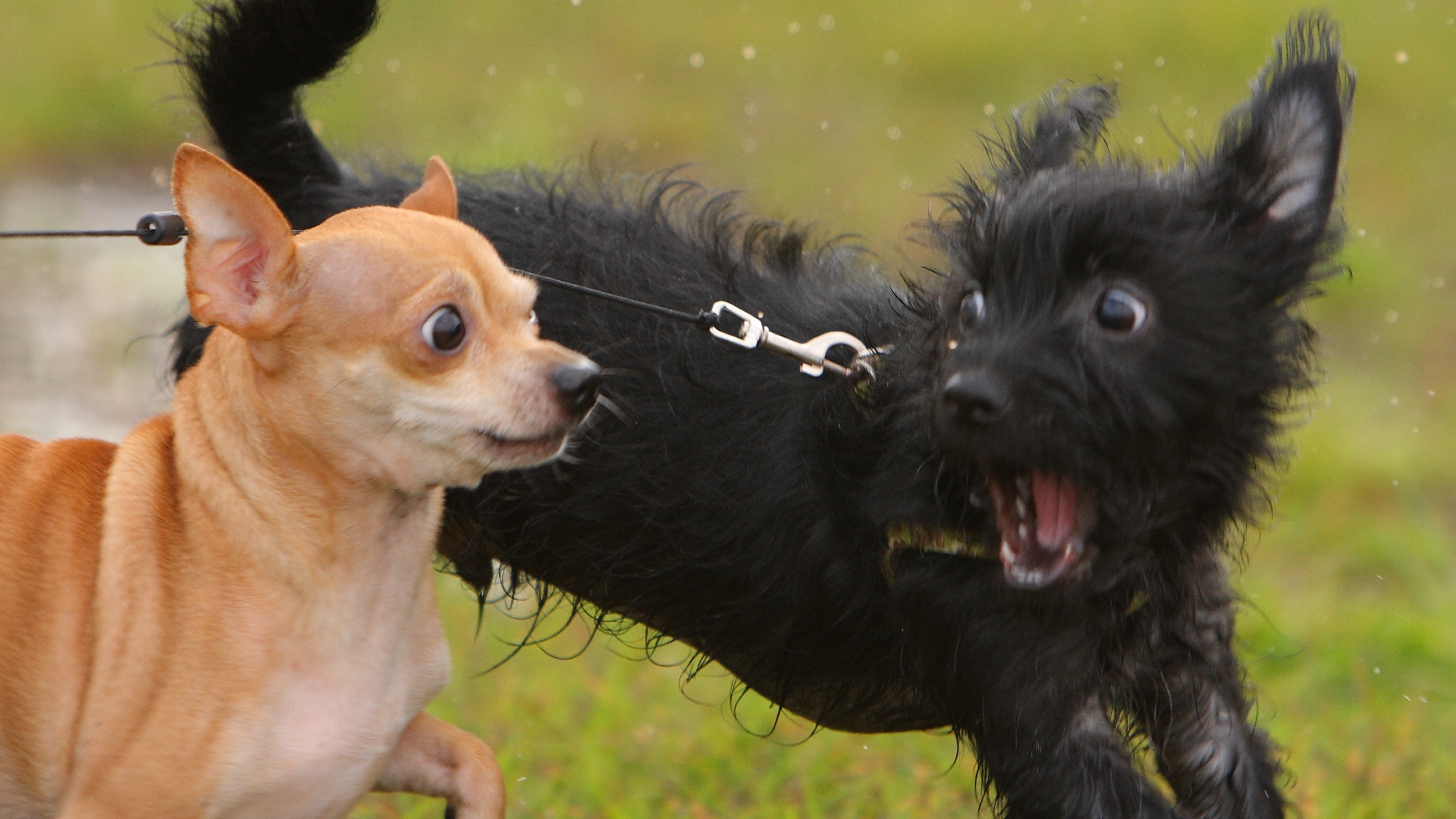Trainer shares five things your reactive dog wishes you knew
Struggling with your dog’s reactive behavior? Trainer reveals five things to remember when things feel tough

Get the best advice, tips and top tech for your beloved Pets
You are now subscribed
Your newsletter sign-up was successful
Of all the issues that you potentially face as a dog owner, reactivity is hands down one of the most challenging ones to navigate.
Reactive dogs have certain triggers that cause them to have heightened reactions to particular stimuli.
While learning how to calm a reactive dog can be helpful, difficult behaviors such as growling, barking, and lunging, can leave you feeling stressed every time you and your pup are out and about together.
It's important to understand that your fur friend isn't trying to make your life harder. In fact, according to expert trainer and behaviorist Nikki Mather, when your dog is being reactive, what they're actually trying to do is communicate with you.
With that in mind, here's five things your dog wishes you knew when they're mid-reaction..
A post shared by Positive Steps Dog Training (@positivestepsdogtraining)
A photo posted by on
1. I'm not bad: "They’re not being naughty, they’re struggling to handle some big emotions," explains Mather. It can be easy to fall into the trap of thinking your reactive dog is deliberately being difficult, but in reality, they're doing their best to handle the challenging feelings that certain stimuli trigger in them.
2. I'm feeling overwhelmed: Mather says dogs will often become reactive as a way of trying to communicate that they can't handle the particular situation they've been placed in. "It’s our job to do our best not to put them into situations they cannot handle," she explains.
Get the best advice, tips and top tech for your beloved Pets
3. I don't feel safe: "Your dog cannot rationalize like you can," Mather explains, "they’re reacting because they feel unsafe."
4. I need your help: Advocating for your dog is such an important part of being a pet parent, because if you don't step in and do it for them, they'll try to do it for themselves through undesirable behaviors. "It’s our job to help them feel better, not just correct their behavior."
5. Punishment makes me feel worse: "Punishment suppresses behavior, it doesn’t work on the root cause of the issue, which is how your dog FEELS," says Mather.
It's so important that if you're struggling with your dog's reactivity that you don't try to soldier on alone. We highly recommend reaching out to a qualified professional who has experience in dealing with this issue as they'll be able to provide 1:1 support, advice, and guidance.

Kathryn is a freelance writer who has been a member of the PetsRadar family since it launched in 2020. Highly experienced in her field, she's driven by a desire to provide pet parents with accurate, timely, and informative content that enables them to provide their fur friends with everything they need to thrive.
Kathryn works closely with vets and trainers to ensure all articles offer the most up-to-date information across a range of pet-related fields, from insights into health and behavior issues to tips on products and training.
When she’s not busy crafting the perfect sentence for her features, buying guides and news pieces, she can be found hanging out with her family (which includes one super sassy cat and a kitten), drinking copious amounts of Jasmine tea and reading all the books.
She has written for a range of publications, including Fit&Well, Top Ten Reviews, LiveScience, Goodto, and Product Hunt.
